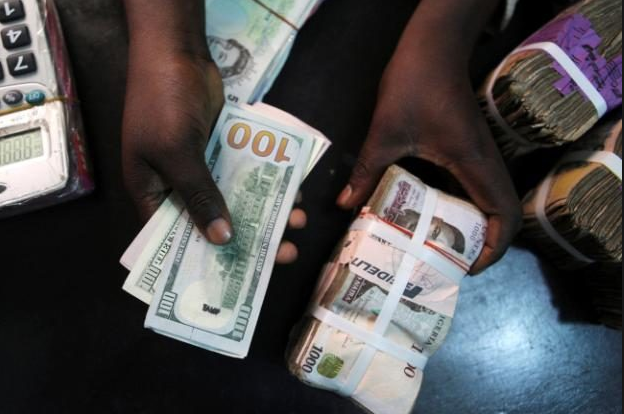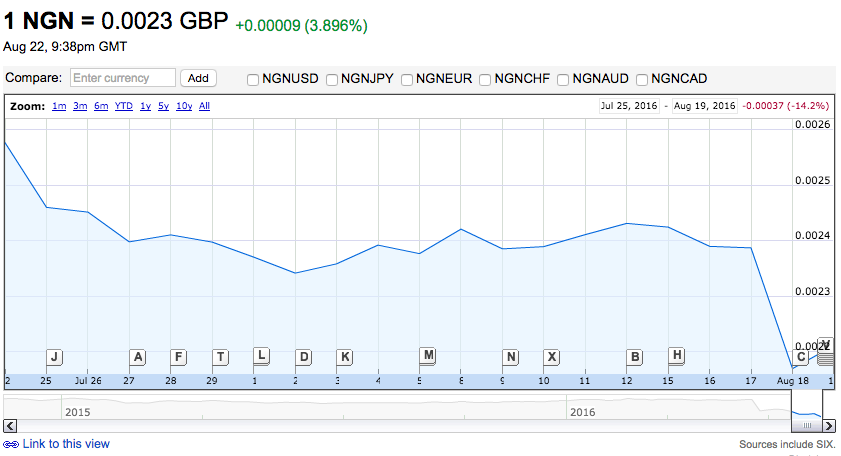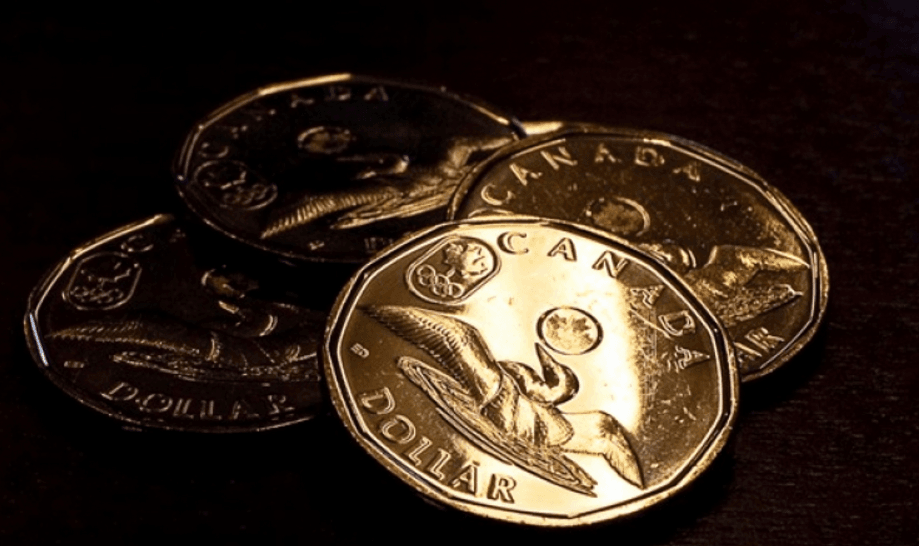
Nigerian Naira Plunge Goes Unabated Despite Emerging Delta Deal
After two years of depressed crude oil prices and an enduring standoff in the Niger Delta that has severely cut oil output, the Nigerian Naira has continued its significant plunge following moves to let the currency float freely back in June. Africa’s largest producer of oil has suffered a tremendous downturn, the likes of which have accelerated over the past few months amid a slumping local currency, a contraction in broader economic activity, and rising unemployment which is contributing to stagflation. Furthermore, the downturn has seen inflation rise to the highest levels since 2005, accompanied by rising interest rates intended to fight rapidly rising prices. On the whole, Nigeria faces a number of challenges when it comes down to restoring the economy and absent a recovery in oil prices, the Naira is likely to see its tumble endure for the foreseeable future.
Peg Removal Comes Amid Mounting Economic Malaise
In a bid to prevent the massive foreign currency outflows that characterized the beginning of the oil price slump, the Central Bank of Nigeria implemented a peg to the US dollar in the range of USDNGN 197.00-199.00. However, instead of shoring up confidence in the economy, the moves had the opposite impact, causing massive investor flight and severely curtailing foreign investment which reached a record low $501.83 million in the fourth quarter of 2015. The abandonment of the peg was intended to reverse some of these declines, however, the sheer pace of the slide in the local currency forced the Central Bank to once again be more active in exchange rate targeting, intervening to prevent further weakness. However, slumping foreign currency reserves, which have fallen to $25.80 billion at last count, indicates that the fight to prop up the currency is rapidly reaching its limits and may soon be deserted.
In the run up period to the peg removal, the reduced levels of economic activity contributed to a -13.70% contraction in first quarter GDP, unemployment that has climbed to 12.10% marking the highest levels since 2009, and inflation which has hit 16.50% as of the end of June. The upward momentum in consumer prices is likely to accelerate considerably in the wake of more flexible exchange rate targeting, potentially meaning further interest rate hikes throughout the remainder of the year in an effort to tame runaway inflation. When accompanied by rising unemployment, Nigeria perfectly fits the definition of stagflation. As a result, the government is responding with an anticipated vote in the coming days on the “Emergency Economic Stabilisation Bill 2016” in an effort to enact sweeping reform measures to help businesses and the broader economy to give a boost and help the currency recover.

Oil Exports Tumble
One of the chief reasons behind the Naira’s collapse has been the rollercoaster ride of crude oil over the last few years. Considering the current energy environment which remains plagued by oversupply and weak prices, Nigeria has been among the hardest hit of the major global oil exporters. Not only was the drop in oil prices reflected by a parallel decline in the government’s revenues, but also mirrored by the steep drop in the Naira since the lifting of the fixed currency peg regime. While forecasts currently are expecting more upward action on interest rates through the end of the year, a move that should help stabilize the Naira to a degree, oil prices could unhinge any fragile equilibrium. Should energy prices remain lower for longer, they could very well bring the Nigerian economy back to the brink.
One potential silver lining from the country comes with the weekend announcement from the Niger Delta Avengers that it will discontinue attacks on energy infrastructure. If this new fragile truce holds and infrastructure is repaired, it could lead to an additional 700,000 barrels of oil hitting global energy markets per day. While positive as it will translate to better revenues and help alleviate pressure on the Naira, it could also be the economy’s undoing especially if added output causes another prolonged downturn in oil prices. When taken in the context of the Central Bank’s more limited ability to intervene in foreign exchange markets, the only real solution to stop the bleeding in the Naira is by taking a page out of the Russian Central Bank’s strategy book by raising rates significantly and quickly. While it may temporarily halt the Naira slide, it remains no long-term solution to solving Nigeria’s woes.
Looking Ahead
The most important upcoming announcements for Nigeria will be the GDP figure which is set to be released at the end of the month. Although expectations are for some degree of rebound from the first quarter’s disastrous print, the oil production outages will likely weigh heavily on the results. In the meantime, before the September interest rate decision which is likely to see additional hawkish tightening, oil prices will continue to play a more integral role in the Naira’s direction. With the Central Bank especially powerless to intervene in rates not that foreign currency reserves are so low, the tool of last resort is rates. While it may help stabilize the Naira, it could also severely impact the nation’s growth, creating a new quagmire for policymakers as they work to navigate a period of weak economic activity and low energy prices.
Tradersdna is a leading digital and social media platform for traders and investors. Tradersdna offers premiere resources for trading and investing education, digital resources for personal finance, market analysis and free trading guides. More about TradersDNA Features: What Does It Take to Become an Aggressive Trader? | Everything You Need to Know About White Label Trading Software | Advantages of Automated Forex Trading










































